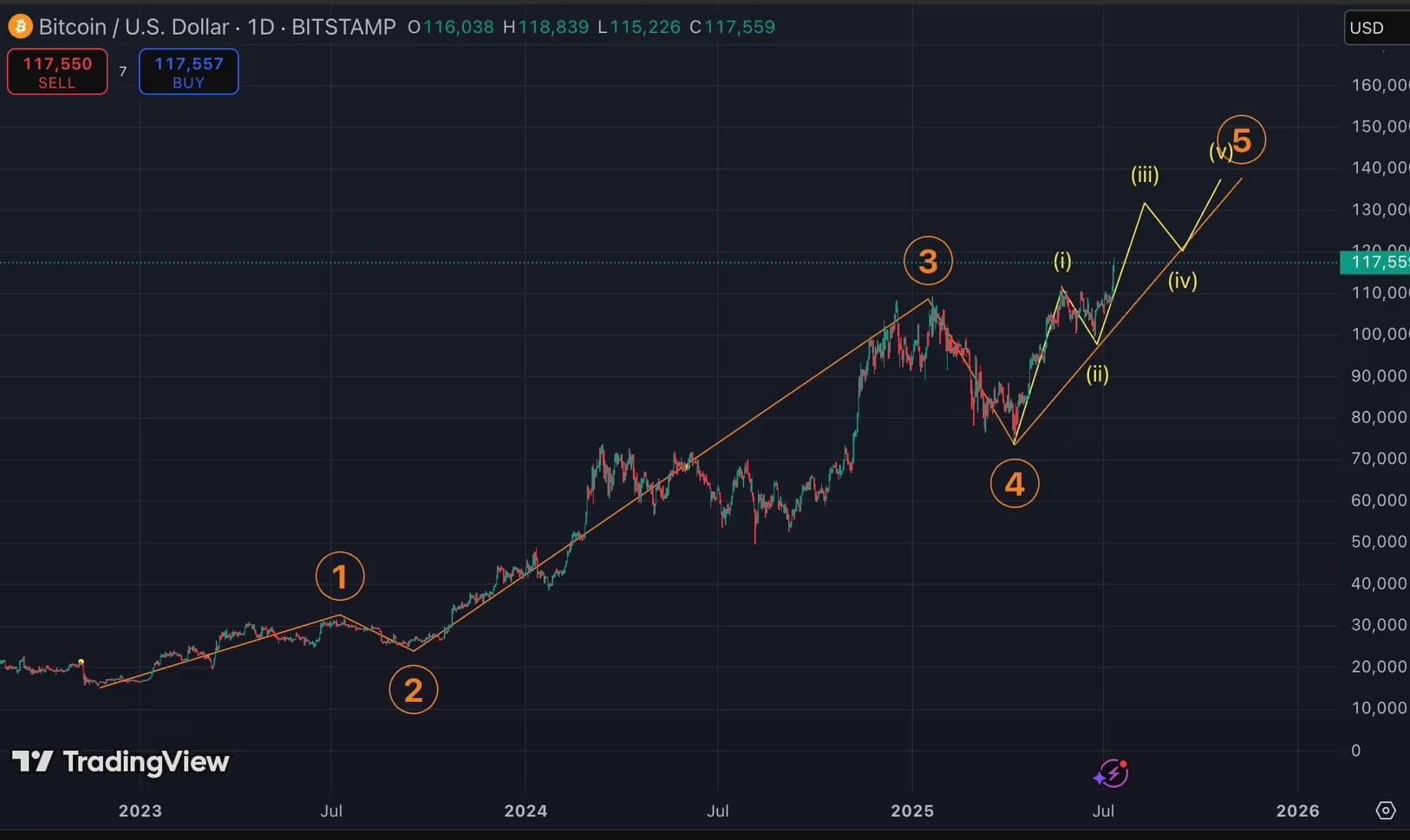Bitcoin today (14th) once again displayed a bullish momentum, breaking through $121,000 for the first time, setting a new high, and increasing its year-to-date gains to 28%. With favorable U.S. legislation and institutional funding support, this surge is not only strong but also appears robust, as analysts generally have high expectations for the future market, believing Bitcoin is likely to continue climbing to $125,000 in the short term and even reach $136,000 by year-end.
According to CoinGecko market data, Bitcoin has risen 2.6% in the past 24 hours, reaching $120,895 at the time of writing, and at one point surged to $121,000 on the Binance and OKX platforms.
BTC Markets analyst Rachael Lucas pointed out: 'Bitcoin has reached a new high, and this surge is not a fleeting moment but is supported by substantial momentum.'
She added that currently, the net inflow of funds into Bitcoin spot ETFs in the U.S. has surpassed $1 billion in a single day, with total assets rising to $150 billion, accounting for over 6% of Bitcoin's total market value, indicating growing institutional confidence in Bitcoin.
Market enthusiasm continues to heat up, coinciding with the upcoming 'Crypto Week' in the U.S., where both houses of Congress will discuss multiple cryptocurrency regulatory bills, becoming another policy tailwind for Bitcoin's movement.
Two key bills are drawing significant attention: the first is the (CLARITY Act), which seeks to clarify the regulatory responsibilities for cryptocurrencies and clearly define the roles of the U.S. Securities and Exchange Commission (SEC) and the Commodity Futures Trading Commission (CFTC); the second is the (GENIUS Act), which aims to establish a complete legal foundation for stablecoins.
Short-term prospects are hopeful for breaking through $125,000.
Rachael Lucas expects that if the trend of Bitcoin spot ETFs attracting funds does not decline, coupled with an overall loosening economic environment and rising expectations for interest rate cuts, Bitcoin may likely surge to the range of '$125,000 to $128,000' in the short term.
According to SoSoValue statistics, since April of this year, net inflows into U.S. Bitcoin spot ETFs have reached $16.2 billion, injecting solid strength into this market rally.
BTSE COO Jeff Mei is also optimistic about Bitcoin's future performance, estimating that Bitcoin may further rise to $125,000 within the next one to two months.
Although the Trump administration recently restarted tariff offensives against the EU and Mexico, which could short-term disrupt market sentiment, he believes: 'Institutional investors have clearly factored these geopolitical risks into their evaluations, and overall still choose to increase their positions in Bitcoin and continue to hold bullish sentiments.'
Challenging $136,000 by year-end.
Ledn CEO John Glover stated that Bitcoin's recent breakthrough to a new high signals that the bullish market has not yet peaked, and it may even reach $136,000 before the end of the year.
John Glover explained to clients: 'We have finally succeeded in breaking through to a new high, confirming the end of the second wave correction at $96,000 at the end of June, and officially launching a larger-scale fifth wave rally.'
He further added: 'Although the ultimate target remains set at $136,000, this breakthrough suggests that the timeline to reach the target may be advanced, which was originally estimated for Q1 of 2026, but now it is likely achievable before the end of this year.'

Market focus on U.S. June inflation data.
However, the market's focus has quickly shifted to the upcoming U.S. inflation index for June. According to (FactSet) data, economists expect the U.S. June Consumer Price Index (CPI) to increase by 0.25% month-over-month, with an annual increase of 2.6%; for the core CPI, excluding food and energy volatility, it is estimated to rise by 0.3% month-over-month and 3% year-over-year.
If the data shows inflation still facing upward pressure, it may affect the Federal Reserve's (Fed) delay in interest rate cuts, which could impact the movements of risk assets, including Bitcoin, making short-term fluctuations difficult to avoid. However, as the U.S. regulatory environment continues to clarify, large enterprises actively embrace Bitcoin, and ETF continues to attract capital, analysts generally believe that Bitcoin's pullback space is limited.
